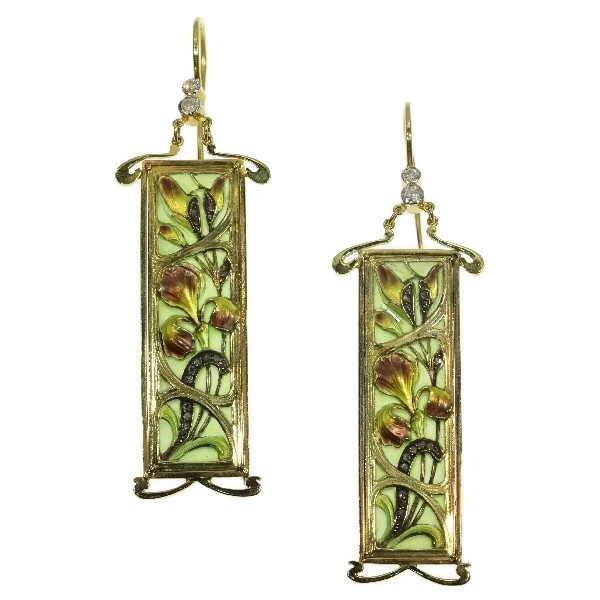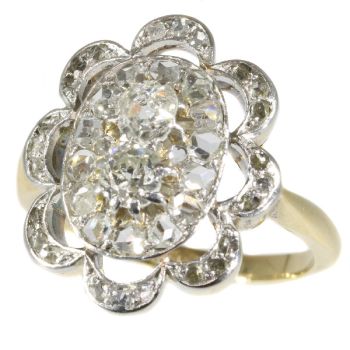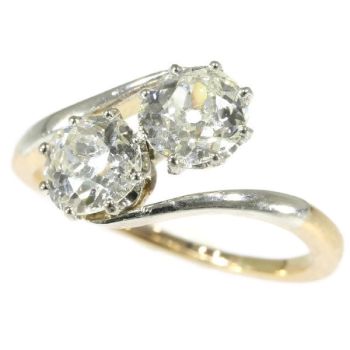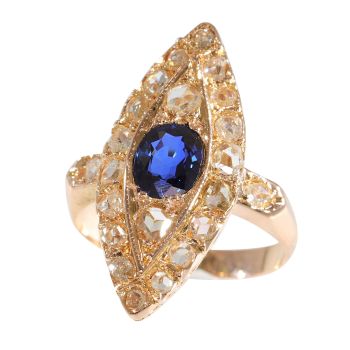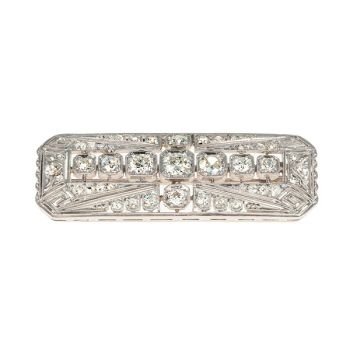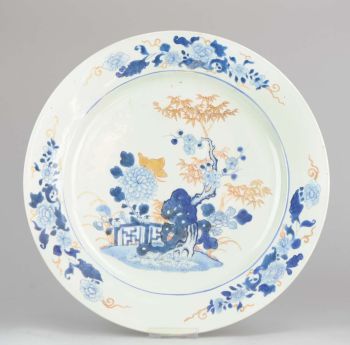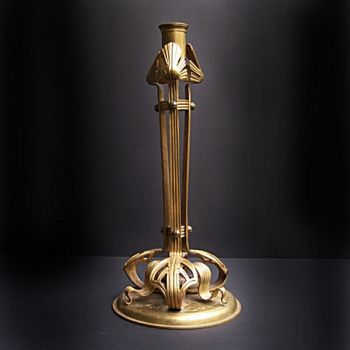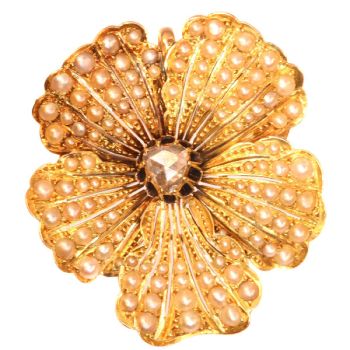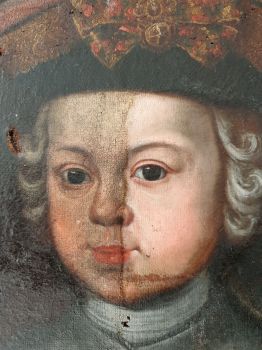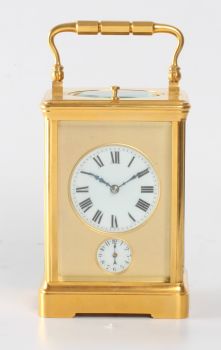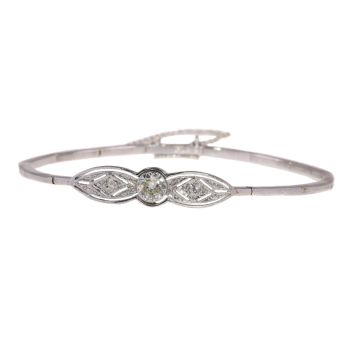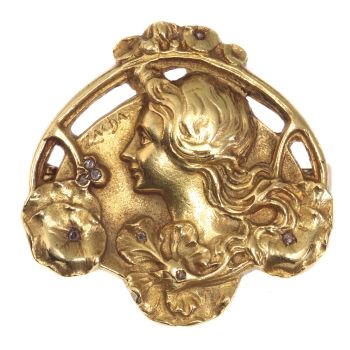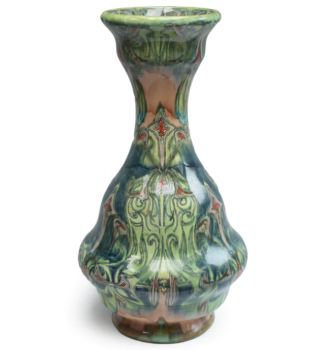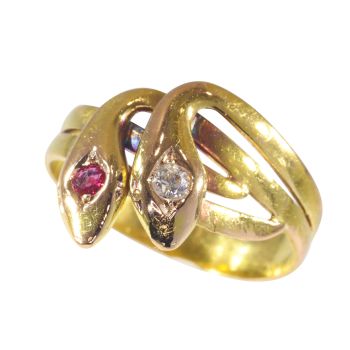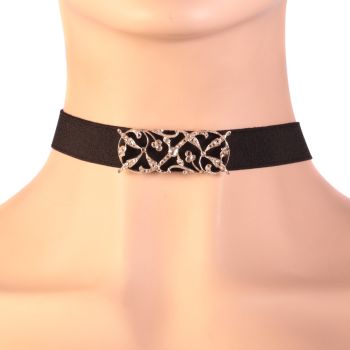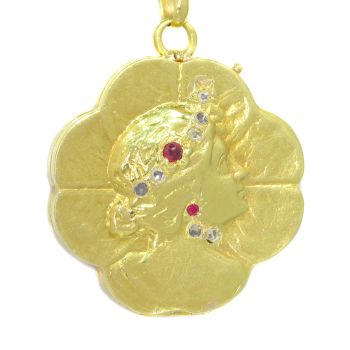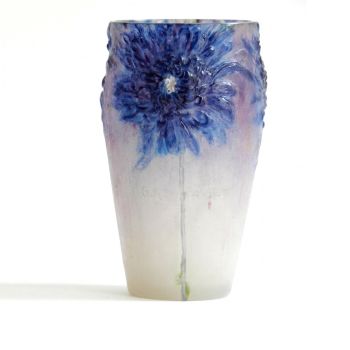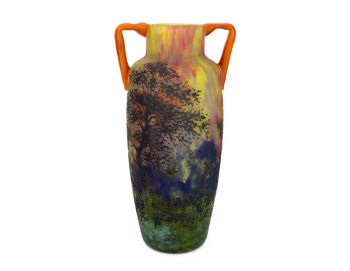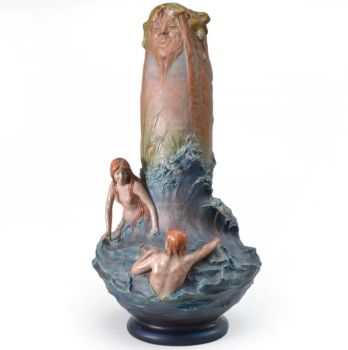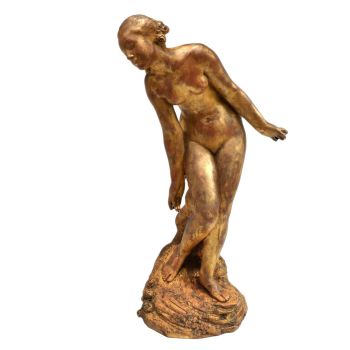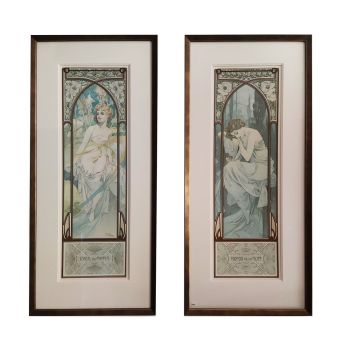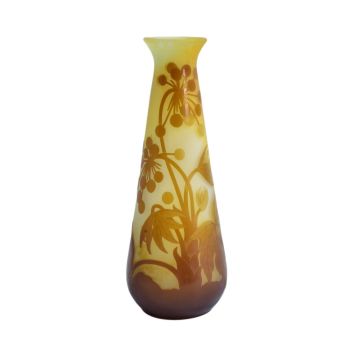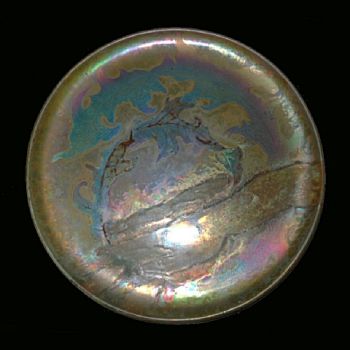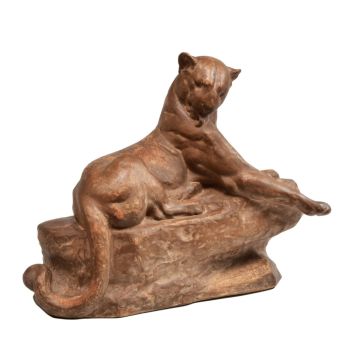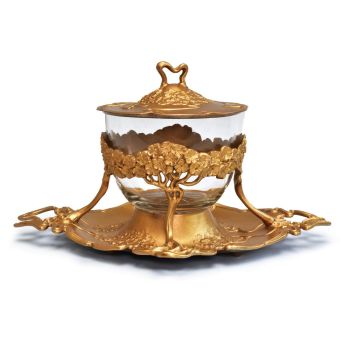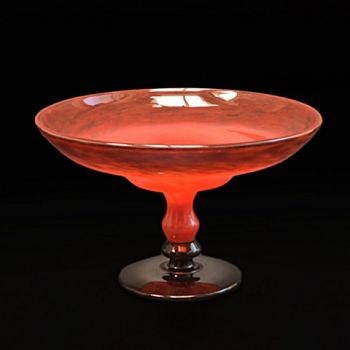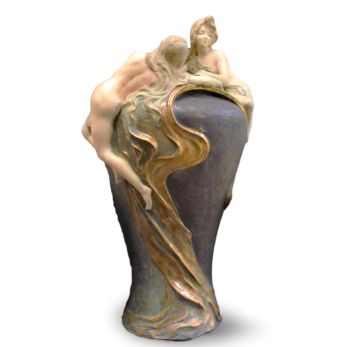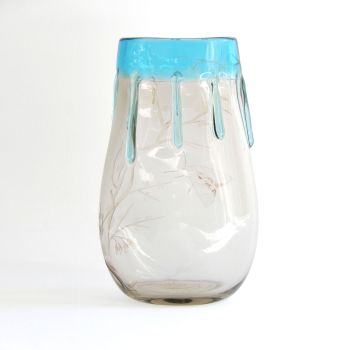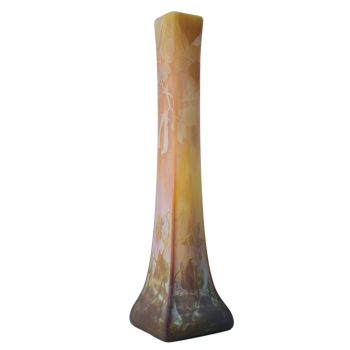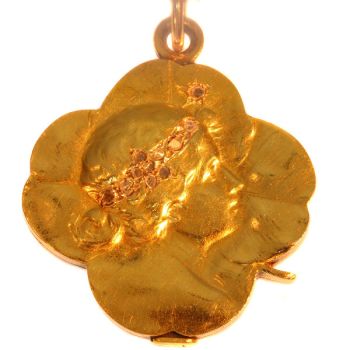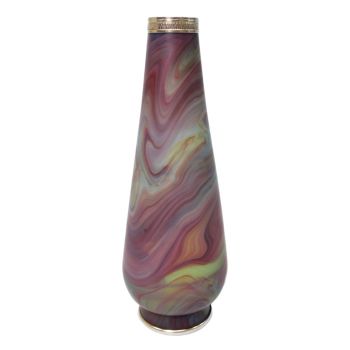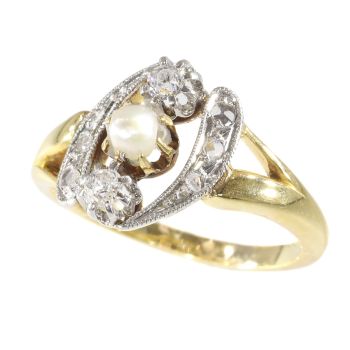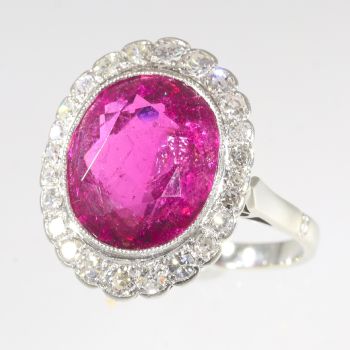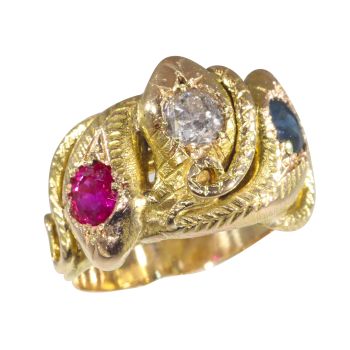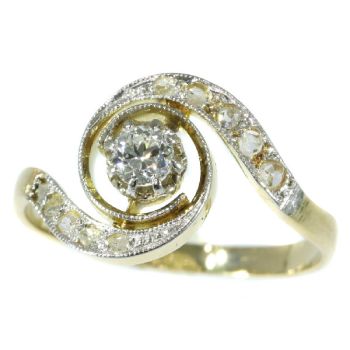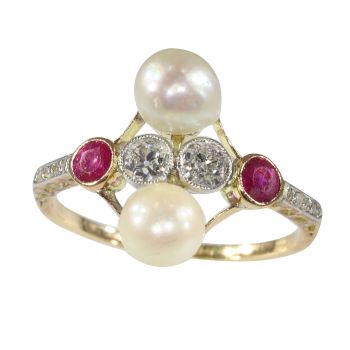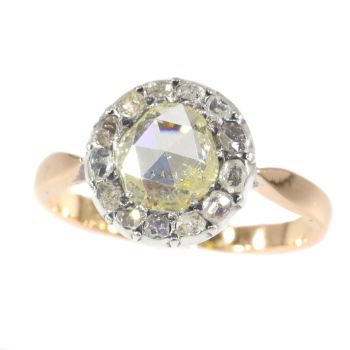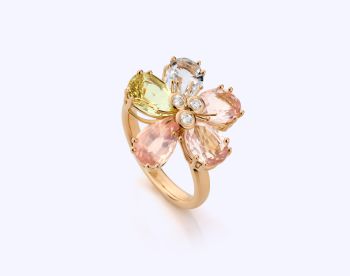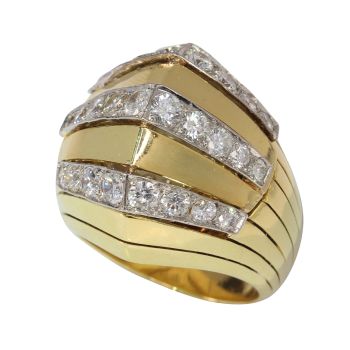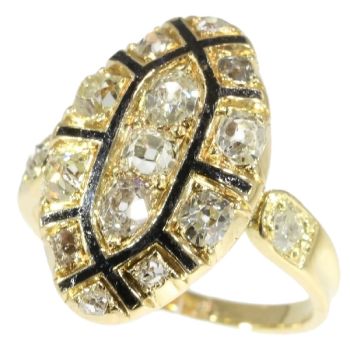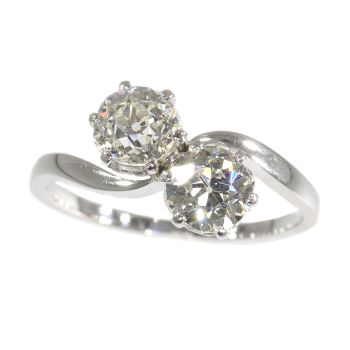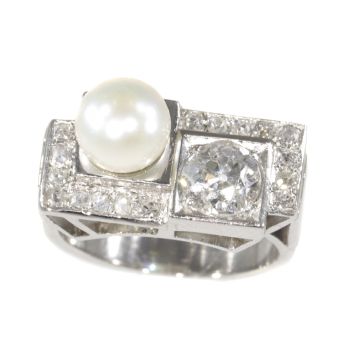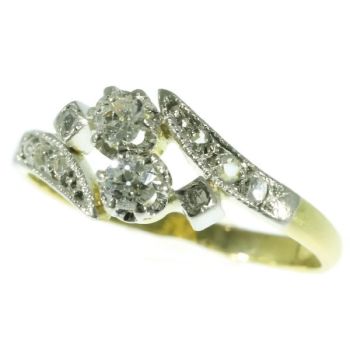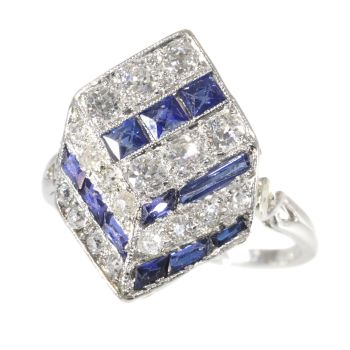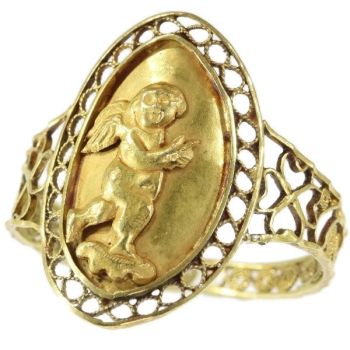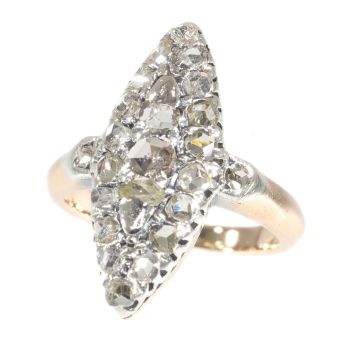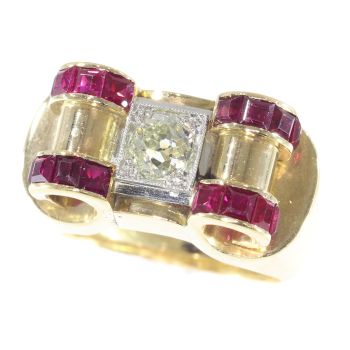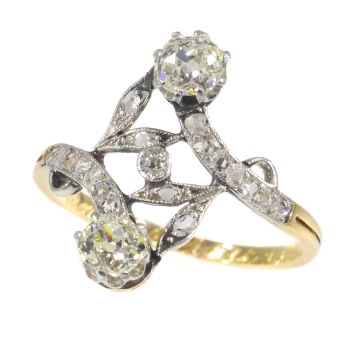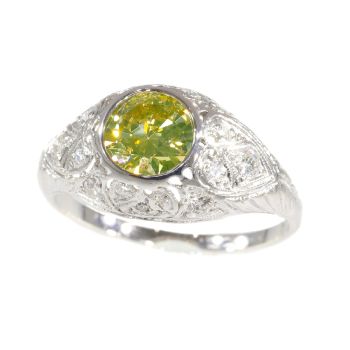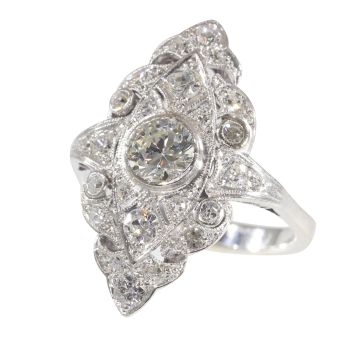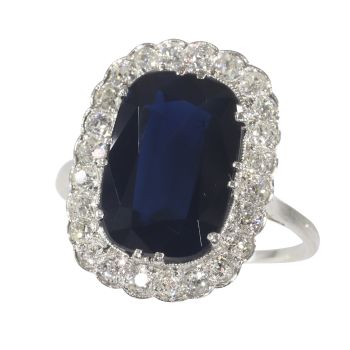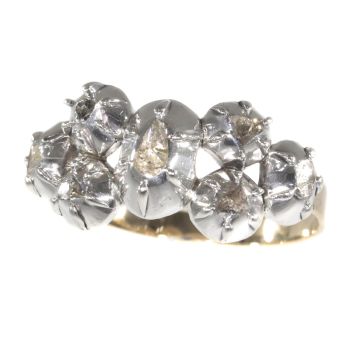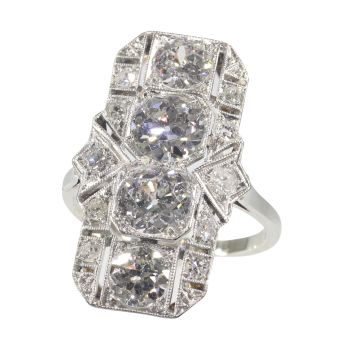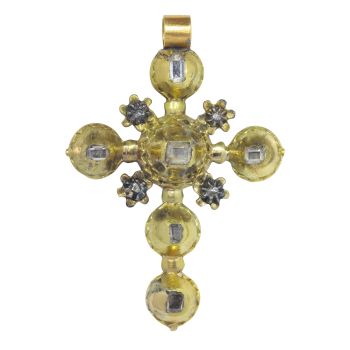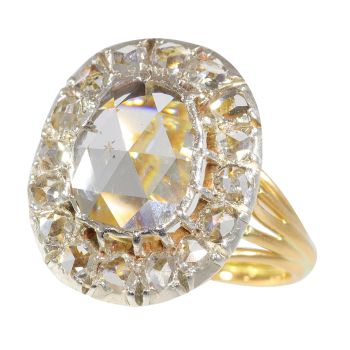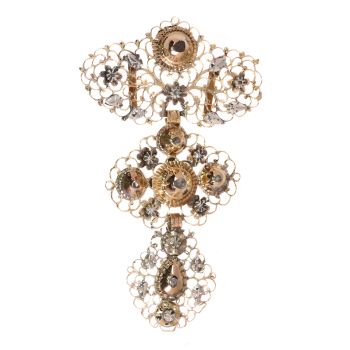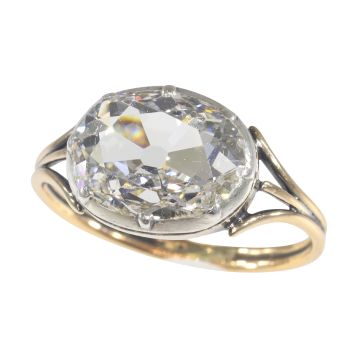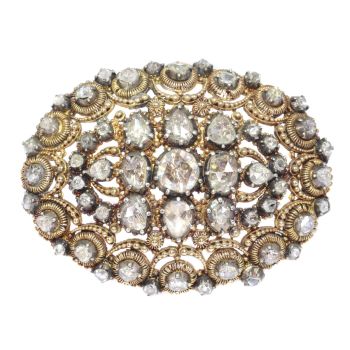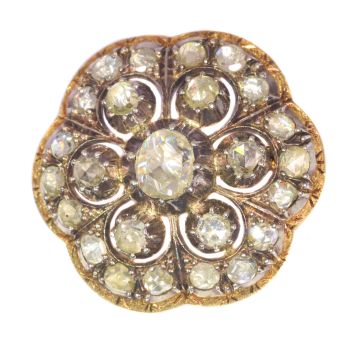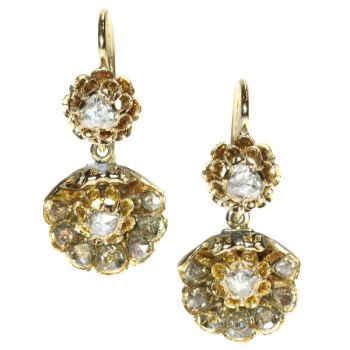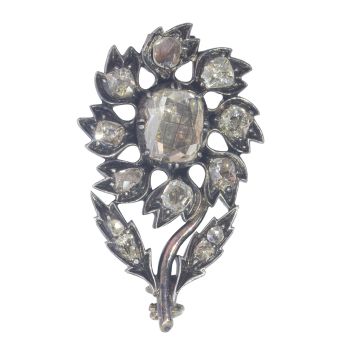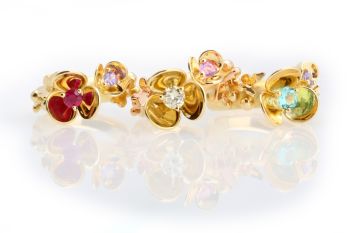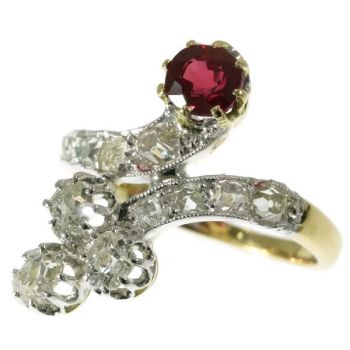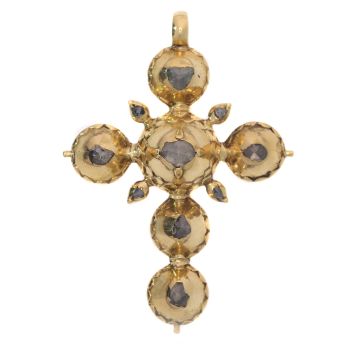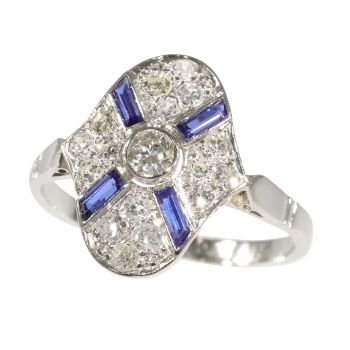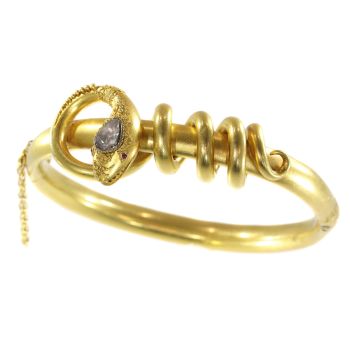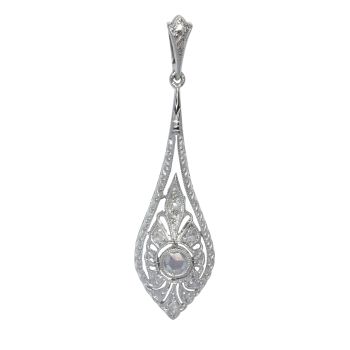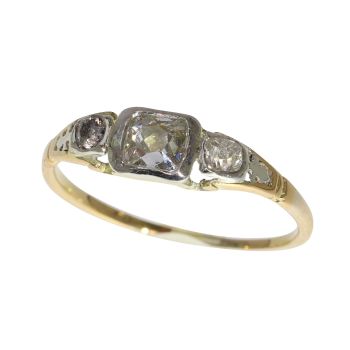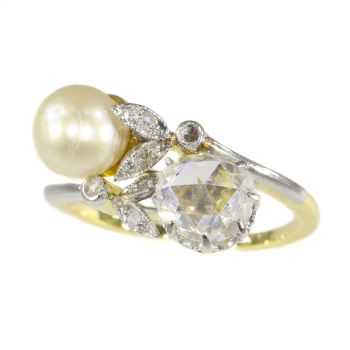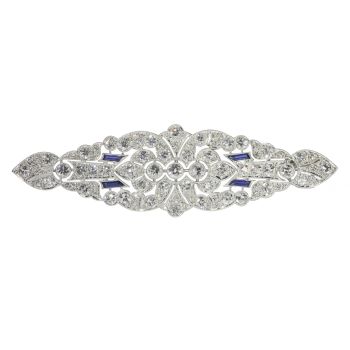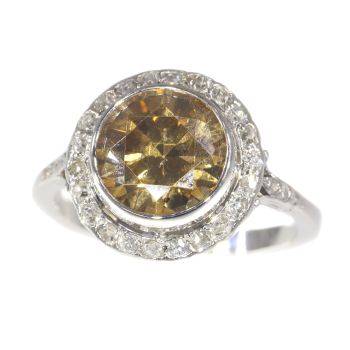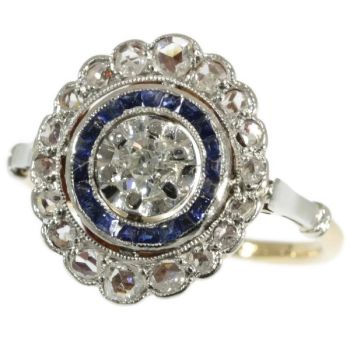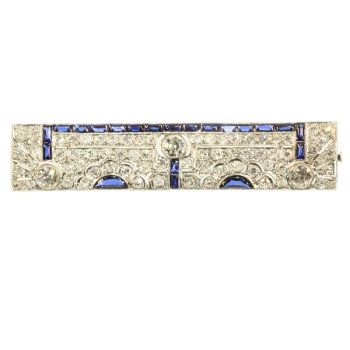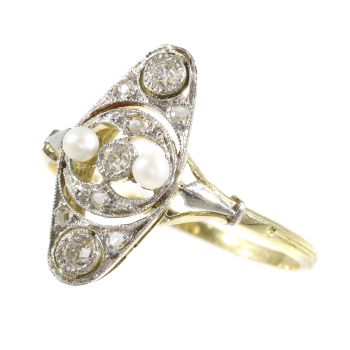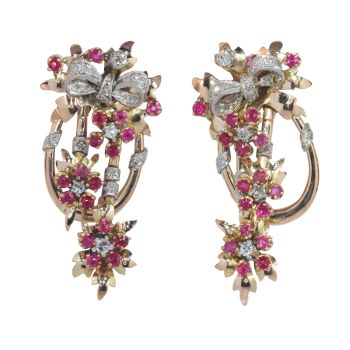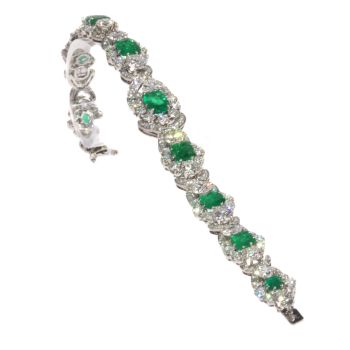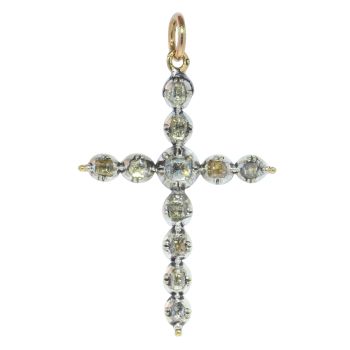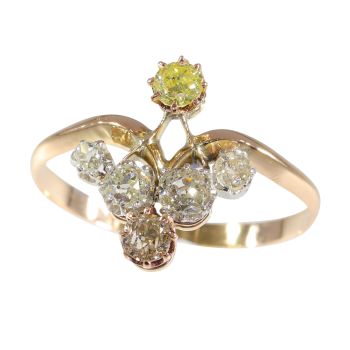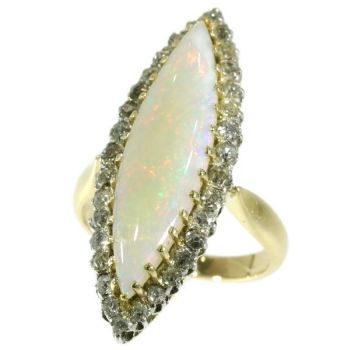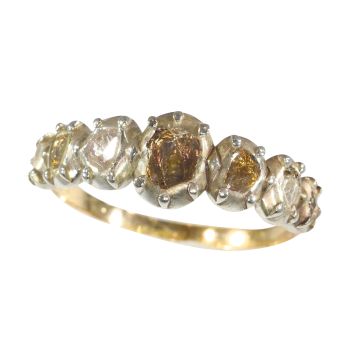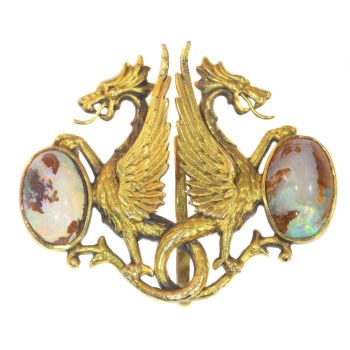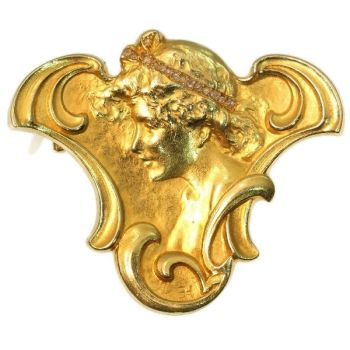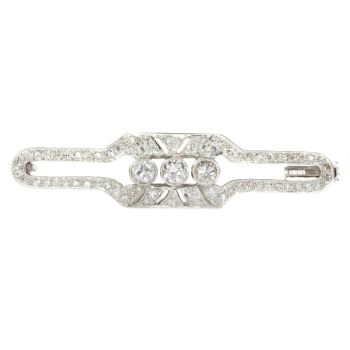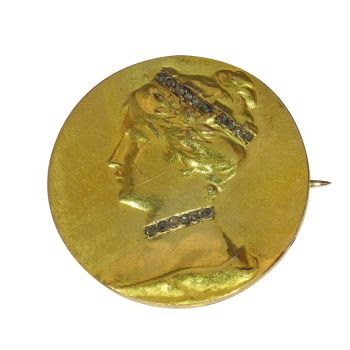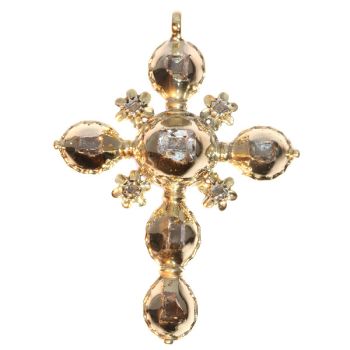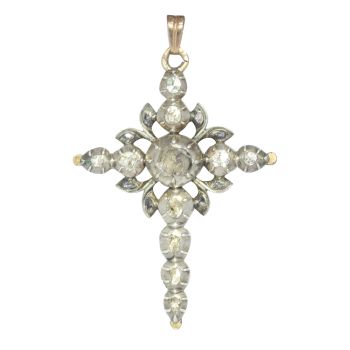Brincos de vitral Art Nouveau em esmalte pliqué ajour e-maille a fenetre 1900
Artista Desconocido
Oro amarilloDiamanteVidrioOroPiedra preciosa
€ 19.000
Adin Fine Antique Jewellery
- Sobre la obra de arte
Within these picturesque Art Nouveau earrings crafted in 18K yellow gold and plique-à-jour enamel, a fleeting daydream of an iris meadow glistening of old mine brilliant cut and rose cut diamonds is captured by a glance through a windowpane. Almostwhirling through the gold framework, these graceful irises are ever so eager to climb up their future goddess's neck.
Antique jewelry object group: earrings long hanging
However, it was clear to us from the beginning that this piece wasn't in its original form anymore when it was first offered to us. Instead, it was previously altered into a small artefact as is shown on the photo with the presenting hand. Therefore, we've adjusted the two plique-a-jour lids into a pair of earrings in absolute accordance with the era in which they were manufactured, namely the Art Nouveau period.
Condition: excellent condition
- (more info on our condition scale)
Country of origin: Although it does not carry any legible control marks we believe this to be of French origin.
Style: Art Nouveau - Art Nouveau (French for New Style) is an international movement and style of art, architecture and applied art - especially the decorative arts - that peaked in popularity at the turn of the 20th century (1890–1905).
The name "Art Nouveau" is French for "new art". It is also known as Jugendstil, German for "youth style", named after the magazine Jugend, which promoted it, and in Italy, Stile Liberty from the department store in London, Liberty & Co., whichpopularised the style, and in Holland as “Sla-olie-stijl”, Dutch for “salad oil style” after a advertisement poster for this product that was made in that style.
A reaction to academic art of the 19th century, it is characterized by organic, especially floral and other plant-inspired motifs, as well as highly stylized, flowing curvilinear forms. Art Nouveau is an approach to design according to which artistsshould work on everything from architecture to furniture, making art part of everyday life. Although Art Nouveau fell out of favour with the arrival of 20th-century modernist styles, it is seen today as an important bridge between the historicism ofNeoclassicism and modernism.
- See also: Art Nouveauor more info on styles
Style specifics: Art Nouveau - The floral ornaments and botanical designs are very typical for the Art Nouveau style. Also the use of curvilinear lines is typical for this period.
Period: ca. 1900
- (events and facts in 1900)
Source of inspiration: Mother Nature (see also: flower symbolism)
Theme: Iris - click here for an explanation on the iris
Material: 18K yellow gold
- (more info on precious metals)
Technique: Enamelling is an old and widely-adopted technology. The ancient Egyptians applied enamels to pottery and stone objects. The ancient Greeks, Celts, Russians, and Chinese also used enameling processes on metal objects. Enamel is the colorful result offusing powdered glass to a substrate by firing, usually between 750 and 850 degrees Celsius. The powder melts and flows and hardens to a smooth, durable vitreous coating on metal, glass or ceramic. According to some sources, the word enamel comes fromthe High German word smelzan (to smelt) via the Old French esmail. Used as a noun, "an enamel" is a usually small decorative object, coated with enamel coating, such as a champlevé or a cloisonné (different techniques).
Plique-à-jour, (French for "braid letting in daylight"} is a vitreous enamelling technique where the enamel is applied in cells, similar to cloisonné, but with no backing in the final product, so light can shine through the transparent ortranslucent enamel. It has a stained-glass like appearance and is considered very challanging technically. (From: Wikipedia)
Diamonds:Four old mine brilliant cut diamonds with a total estimated weight of approx. 0.32 crt. and 34 rose cut diamonds and senailles. A senaille is a simplified rose cut diamond, a small diamond chip with perhaps a few polished facets. We do not have the weight of the rose cuts diamonds nor the senailles which is normal in our trade when it comes to rose cut diamonds and senailles.
Total diamond weight: approx. 0.32 crt. (without the rose cut diamonds)
Birthstones: Diamond is the birthstone (or month stone) for April.
- (more info on birthstones)
Hallmarks: No trace.
- (more info on hallmarks)
Dimensions: height 7,30 cm (2,87 inch)
Weight: 20.00 gram (12.86 dwt)
Reference Nº: 11139-0001
Copyright photography: Adin, fine antique jewelry
jewelry with iris motif, all floral jewelry, yellow gold jewelry, jewelry with diamond, jewelry with rose cut diamonds, latest acquisitions,
antique jewelry, estate jewelry, vintage jewelry or modern jewelry
Jewelry with birthstones (or month stones) for:
January - February - March - April - May - June - July
August - September - October - November or December.
Additional information:
jewelry glossary - wall of fame - visit us in Antwerp - subscribe to our mailinglist.
What is antique jewelry? - What is estate jewelry? - What is vintage jewelry? - Sobre el artista
Puede suceder que un artista o creador sea desconocido.
Algunas obras no deben determinarse por quién está hecho o por (un grupo de) artesanos. Algunos ejemplos son estatuas de la Antigüedad, muebles, espejos o firmas que no son claras o legibles, pero también algunas obras no están firmadas en absoluto.
También puedes encontrar la siguiente descripción:
•"Atribuido a …." En su opinión, probablemente una obra del artista, al menos en parte.
•“Estudio de….” o “Taller de” En su opinión, una obra ejecutada en el estudio o taller del artista, posiblemente bajo su supervisión
•“Círculo de…” En su opinión, una obra del período del artista que muestra su influencia, estrechamente asociado con el artista pero no necesariamente su alumno.
•"Estilo de …." o “Seguidor de…”. En su opinión, una obra ejecutada al estilo del artista pero no necesariamente por un alumno; puede ser contemporáneo o casi contemporáneo
•"Manera de …." En su opinión una obra al estilo del artista pero de fecha posterior
•"Después …." En su opinión, una copia (de cualquier fecha) de una obra del artista
•“Firmado…”, “Fechado…” o “Inscrito” En su opinión, la obra ha sido firmada/fechada/inscrita por el artista. La adición de un signo de interrogación indica un elemento de duda.
•“Con firma…”, “Con fecha…”, “Con inscripción…” o “Lleva firma/fecha/inscripción” en su opinión la firma/fecha/inscripción ha sido añadida por alguien que no es el artista
¿Está interesado en comprar esta obra de arte?
Artwork details
Related artworks
- 1 - 4 / 12
Frères Daum
Daum Nancy – “Paysage Soleil Couchant” vase with two applied handles1900 - 1910
Precio a consultarAntiques Emporium
1 - 4 / 24- 1 - 4 / 24
- 1 - 4 / 24
- 1 - 4 / 12

